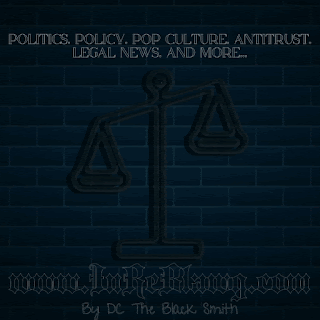What is Defamation?
The claim of defamation is the publication of a false statement of fact to a third party that tends to harm reputation. Some jurisdictions distinguish between spoken defamation (libel) and fixed medium defamation (slander).
To remedy defamation courts can impose an injunction to end the behavior (not preferred) or impose monetary damages as compensation for the injury caused.
In summation, a party has to prove:
False statement of fact (that the statement was a provable fact, not a subjective opinion)
Published to a 3rd party
Injury, demonstration of harm to reputation
Defamation Per Se
When the published statement of fact fits into one of these categories, then the injury (harm to reputation) is inferred. These are:
Crime punishable by prison
Venereal Disease, STI, STD
Inability to perform or integrity to public office
Adultery (and in some cases fornication)
Words that prejudice a party in the trade or business
Even within these categories, there still has to be a demonstration that the allegation was provable, is false, and was published to a 3rd party. But if proven factually false then these categories are considered presumptively damaging to reputation.
Defamation per Quod
A category of things that require extrinsic facts to show that they are defamatory. Maybe culturally or community specific, maybe situational. Damages must be proven on the claim fails.
Non-Constitutional Defenses
Truth, opinion
Public proceedings
Hopital peer review
Judicial proceedings
Public Official v. Media Outlet
This is typically someone who holds a public office and is suing a media outlet. The public figure has to prove that the media outlet published the statement with actual malice. Actual malice has been determined to mean with knowledge of falsity or reckless disregard for the truth. Concerning media outlets, if the outlet did not perform proper due diligence or normal journalistic investigation. If a media outlet defendant can demonstrate reasonable or industry normal investigation then they may be able to prevail.
Public Figure v. Media Outlet
A public figure is what we would most recognize as a celebrity or a well/widely known and recognized person in an industry. Actual malice has to be proved also. And the Media outlet has to demonstrate reasonable or industry standard investigation to prevail.
Private Citizen v. Media Outlet
The private citizen would have to demonstrate either actual malice on the part of the media outlet, actual injury, or some other statutory basis that may apply.
This does not come up as much. There is an increase in private party filming, social media publishing by the private party, then news outlets using the footage. The originating private film most likely does not have any clearances or agreements to anyone that happens to be in the vicinity of the filming. Someone is always filming a crowd without regards to whether everyone wants to be in films. And news outlets publish more and more social media clips. Maybe this will become a more active area of litigation.
Private Citizen v. Private Citizen
False publication of provable fact to a 3rd party that tends to harm reputation. Standard
Hot Topics
One of the hot topic cases in this area has been the recent litigation between YouTube Content Creator Tasha K v. Cardi B.
These types of litigation are not a reinvention of the wheel. Perhaps a variation of a wheel, but not a reinvention. Media Outlets, magazines, websites, blogs have all faced lawsuits of this nature before. Some prevail, some do not. YouTube content creation, on a basic level, is similar to a media outlet.
The media outlet being sued, does not necessarily shut down operations or retract the story. Retraction would most likely be the function of an injunction… a forced apology by the court would most likely violate the first amendment. A court can injoin removal of the story as best possible, but the publication is out there in the universe. People have read it and maybe saved it somewhere. Shutting down the entire operation of the magazine for one particular victorious defamation claim maybe would offend legal sensibilities.
A lawsuit involving a public figure who sues the individual writer does not have to include the media outlet as a whole. Neither does it have to include the platform.
Third party injunctions are an interesting area of the law.
At the time of filing, the plaintiff has the duty to include all parties or file separating against all known parties that the plaintiff has a grievance against. Separating the parties may be necessary due to jurisdictional constraints. Joining or including parties at the beginning may not be possible, perhaps in the discovery process additional facts are found that implicate a previously unknown party.
If the party is not a part of the lawsuit, generally the court does not impose action on the 3rd party. The option is available for the plaintiff to file against that 3rd party separately if they would like some action imposed.
Stay truthful my friends.
WESTLAW, Defamation, Practical Law Glossary, (Mar. 31, 2022), https://content.next.westlaw.com/Glossary/PracticalLaw/I0f9fea3bef0811e28578f7ccc38dcbee?transitionType=Default&contextData=(sc.Default)&firstPage=true
Cornell Law School, Defamation, (Mar. 31, 2022) https://www.law.cornell.edu/wex/defamation
In Re Outlines, Defamation, Torts (Sept. 2021). https://www.amazon.com/Re-Outlines-Condensed-School-Exams-ebook/dp/B09G21NB79/ref=sr_1_1?crid=KFQDXG6MB697&keywords=in+re+outlines&qid=1648770357&sprefix=in+re+outlines%2Caps%2C261&sr=8-1






